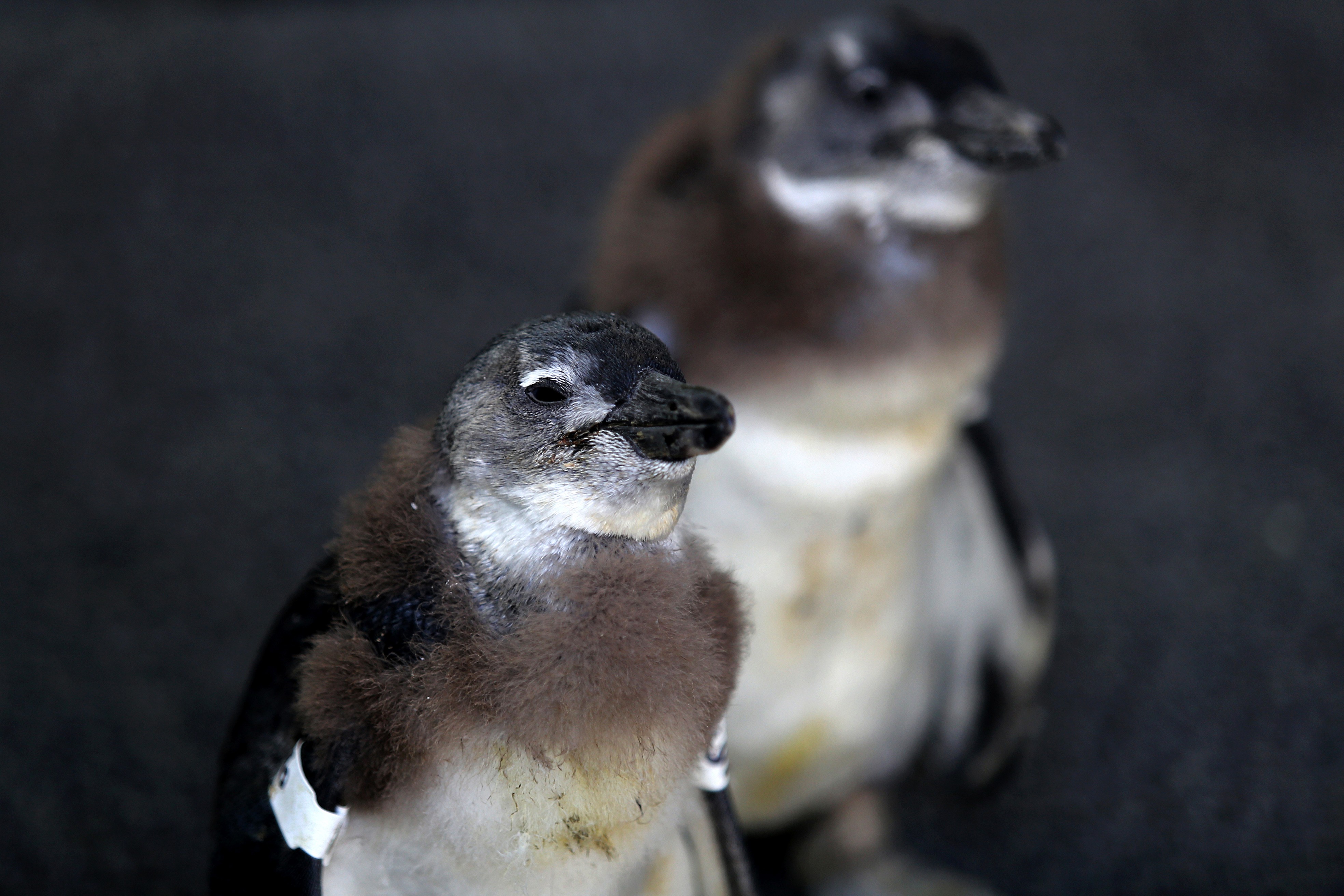Imperilled African penguins pose scientific mystery
CAPE TOWN: In the cold, clear waters at Boulders Beach in Cape Town, the African penguins are so relaxed they swim among humans and waddle past sunbathers on the sands.
But their unique species is dying, and scientists are trying to solve the mystery of whether it is humans that are killing them, and if so, how.
As representatives from over 150 countries huddle at a Paris conference aimed at achieving a global agreement on fighting climate change, the scientific sleuthing off Africa's southwestern coast highlights the difficulties in pinning down the links between global warming and animal behaviour.
African penguins are found only in South Africa and neighbouring Namibia, where they feed on fish shoals in the nutrient-rich waters of the cold Benguela current that runs northward along the west coast.
The number of breeding pairs has dropped by 90 percent at South African colonies north of Cape Town, from about 32,000 in 2004 to just over 3,000 in 2014, according to official statistics.
There is little dispute that the reason for the sharp decline in the number of little jackass penguins -- so nicknamed for their braying calls -- is the strange behaviour of their main prey, sardines and anchovies.
The concentrations of fish have moved southwards and eastwards, leaving the penguins dying of hunger in their wake.
- A search for answers -
Scientists say an obvious culprit might appear to be overfishing, but there is some dispute about whether this is borne out by the results of periodic fishing bans around some of the penguins' major habitats.
"The fish have seemingly changed their distribution, but what caused that is still a big research question," said Rob Crawford, a scientist with South Africa's department of environmental affairs.
"Overfishing and climate change are the main two possibilities and it is very hard to disentangle them," he told AFP.
There is no question that humans were responsible for an initial steep decline in the number of African penguins, which are classified as endangered by the International for the Conservation of Nature.
The environmental affairs department says the overall South African population may have been around a million breeding pairs in the 1920s -- dropping to just 19,000 in 2012.
The exploitation of eggs for human consumption played a major role in the early disastrous decline, but egg collection was banned in 1967 and numbers have continued to plummet.
The population in Namibia has also fallen sharply, from 12,162 breeding pairs in 1978 to an estimated 4,563 pairs in 2008, according to Birdlife International.
"There is no clear cut answer that climate change (over long-term environmental variation) is a driver, but it is thought to be playing an important role," says Richard Sherley, a University of Exeter researcher and expert on the African penguin.
"Changes in sea surface temperatures in the 1990s and early 2000s have resulted in (amongst other things) a change in the area most suitable for spawning for anchovy and sardine," he told AFP in an email interview.
"As a result, the high-energy prey that the adults of these fish species represent for penguins is far from the penguin colonies on South Africa’s West Coast for much of the year."
- Time to move? -
A plan to establish a new colony for penguins on the south coast, closer to their shifting food source, is among proposals aimed at saving the species.
Before penguins are moved to the chosen site, it will be prepared to make it seem like an established colony, says Birdlife South Africa.
Decoys, sound recordings and mirrors will be used to give the illusion of penguins using the colony, and penguin chicks and young will be released there.
One of the colonies hardest hit is on Cape Town's Robben Island, where late liberation icon Nelson Mandela and other anti-apartheid activists were imprisoned.
Thousands of kilometres to the south, in Antarctica, the charismatic Emperor penguins -- the inspiration for the Oscar-winning animated film "Happy Feet" -- are also threatened by rising temperatures, international researchers have warned.
In Paris, delegates to the climate change conference, which runs until December 11, are haggling over an ambitious roadmap for achieving the UN goal of limiting global warming to two degrees Celsius (3.6 degrees Fahrenheit) over pre-industrial levels.
The UN's climate science panel says the emission of greenhouse gases from the burning of fossil fuels such as coal has to drop 40-70 percent between 2010 and 2050, and to zero by 2100.
As the wrangling continues, the African penguins may be a living warning of the cost of failure.






